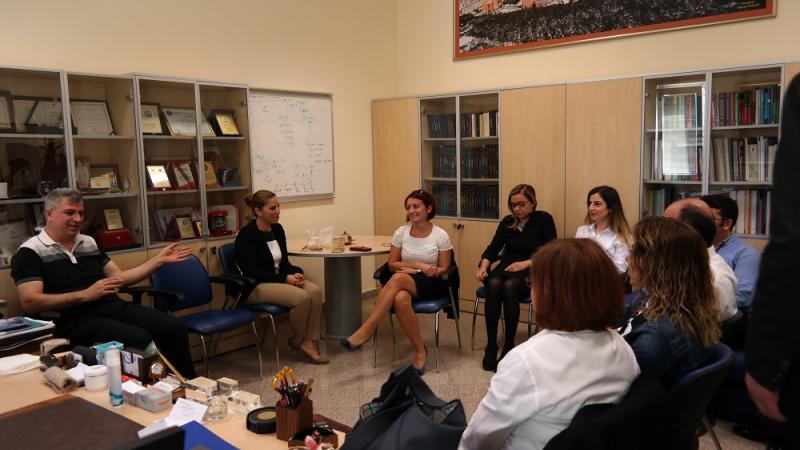NO MORE SEED-BORNE DISEASES WITH A SYSTEM DEVELOPED BY YEDITEPE UNIVERSITY

Healthy seeds: healthy people and nature
A New Development in Formulating Antimicrobial Seed Surface Coating to Fight with Plant Pathogen Dispersal” project supported by the General Directorate of Agricultural Research and Policy (TAGEM), Ministry of Food, Agriculture and Livestock and run by the Yeditepe University Genetics and Bioengineering Department has started. With this project, seed-borne diseases are expected to be eliminated.
It is known that approximately 127,4 million tons of seed, which is the most basic and important element of plant production, are used worldwide today. "Seed-born pathogens" that are carried by seeds from *pathogens, and lead to diseases in plant production, as well as fungal, bacterial and viral diseases cause serious losses in output and quality. For this reason, in the aim of eliminating the possible harms of seed-borne diseases, seed insemination is done. Several physical, biological and chemical methods are used to eliminate seed pathogens. However, none of these methods prove to be effective for all kinds of plant seeds in keeping the pathogens under control at epiphytic (outer seed) and endophytic (interior seed) areas.
Based on this need, the project run by Yeditepe University Genetics and Bioengineering Department led to the development of a new seed covering material (formulation) that is effective against all pathogens (bacteria, fungus and virus) both at the interior and exterior of the seed , and does not harm the germinating ability of the seed. Thanks to this project, seed-borne diseases and product loss due to these diseases will be prevented.
Concerned specialists from General Directorate of Agricultural Research and Policy (TAGEM) and Geofit Research and Education Center , as well as project manager and research assistants from Yeditepe University have participated in the opening and publicity meeting of the project held at Yeditepe University.

In the meeting, the project coordinator Prof. Dr. Fikrettin Şahin, head of Yeditepe University Genetics and Bioengineering Department, gave detailed information about the birth of the project. He said that the project was successful thanks to the non-contaminated wheat, barley, and chickpea seeds that ISTIB has been keeping for 50 years. With the new formulation, the seed will be protectcted in terms of its ability to germinate, and the worldwide use of it, seed bed contamination will be prevented.
*Pathogen: All kind of microorganism, bacteria, fungus, and/or phytoplasm that are likely to cause diseases.